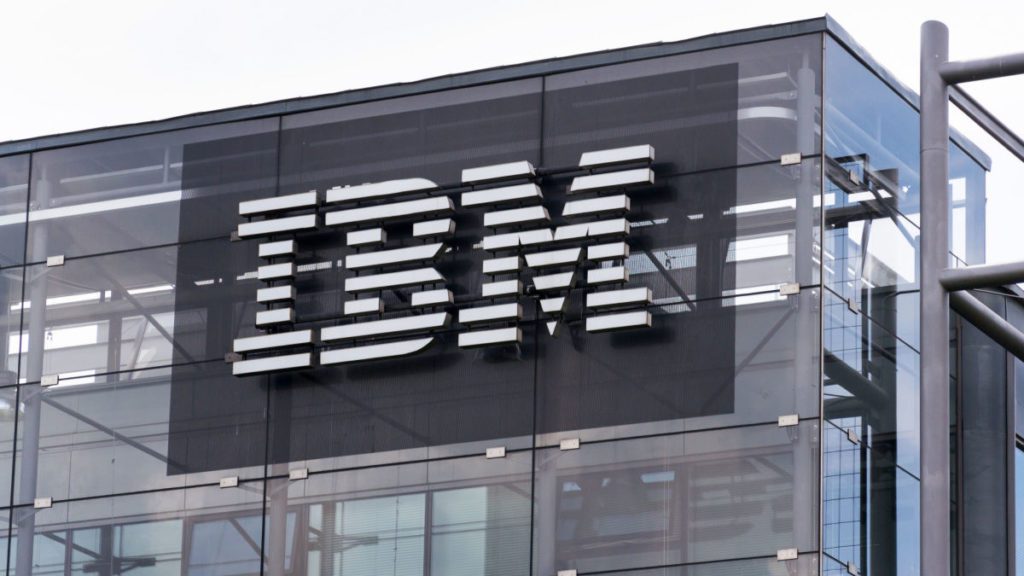
Delivering a simple message that for many quarters was just a dream — “we are taking up our revenue expectations for the year” — IBM CEO Arvind Krishna laid out a compelling case for how his intense focus on the cloud and artificial intelligence (AI) has transformed IBM into an innovative and disruptive contender.
With Q3 cloud revenue up 19% to $5.2 billion and total IBM revenue up 15%, IBM has shaken off the stagnation that has dogged the company for several years, and Krishna deserves enormous credit for that.
“Our point of view is clear: Hybrid cloud and AI are the two most transformational enterprise technologies of our time,” Krishna said on the Oct. 19 earnings call.
“Hybrid cloud is already becoming the dominant architecture for enterprises. According to a recent survey by The Harris Poll, 77% of businesses surveyed said they have adopted hybrid cloud for their organizations, with data located across multiple clouds, on premise, or at the edge.”
And what I find particularly impressive about IBM’s cloud performance is that cloud revenue continues to grow across all three parts of IBM’s business: software, infrastructure, and consulting, with consulting being the star performer. Here are the cloud-growth figures for the 12-month period ended Sept. 30 for each of those product categories:
- Consulting up 28% to $8.9 billion
- Software up 20% to $9.2 billion; and
- Infrastructure up 6% $3.9 billion.
(Remember, these are not the total revenue figures for each of those three product groups — rather, these are the cloud portions for each.)
That all rolls up to a 12-month cloud-revenue total of about $22 billion and a growth rate of 20%, far exceeding anything the meager cloud-growth numbers IBM was generating in Krishna’s first couple of years as CEO.
Krishna is about two-and-a-half years into his CEO adventure, which means he took over that role in early April of 2020, just as the full impact of the pandemic was devastating the global economy. Over that time, Krishna has not wavered in his commitment to simplifying the iconic company as he has cored IBM down to be able to focus intensely on hybrid cloud, AI, and data, with a corresponding active engagement in the cybersecurity space.
In my mind, the biggest achievement from Krishna has been transforming the IBM culture —particularly in sales — away from intramural competition that stifled collaboration around customers, and toward a client-centric sales and go-to-market model that simplifies the buying process.
That might seem like a simple fix — just tell everybody to focus on the customers, right? — but since it took a few decades for that fragmented culture to reach the clogged and sclerotic state it was in when Krishna took over from former CEO Ginni Rometty, he should be applauded for overhauling it in two years.
And AI is becoming a complementary growth engine for IBM, which is ideal since the cloud and AI have demonstrated their combined ability to help businesses do things never before possible. On the earnings call, Krishna outlined four key use cases for IBM’s AI business:
- AI to interact and converse;
- AI to automate information technology (IT) processes;
- AI to extract knowledge and insights; and
- AI to automate business workflows such as HR, supply chains, and financial reporting.
When I launched Cloud Wars about five years ago, IBM was ranked #4 on the Cloud Wars Top 10. It’s also fascinating to think that four to five years ago, IBM’s quarterly cloud revenue was significantly larger than that of Microsoft and Amazon. But then all of IBM, including its cloud business, stagnated in the final years of the Rometty era while Azure and AWS exploded.
But IBM is clearly back, and I must admit I was very excited to see Krishna say these 10 simple but profound words on that Oct. 19 earnings call: “We are taking up our revenue expectations for the year.”
Keep that accelerator on the floor, Arvind!
Want to gain more insights from Bob Evans and view cloud-focused content from Cloud Wars Expo? On-demand video from the event is rolling out now, with more than 40 hours of cloud education content — featuring 100-plus speakers — to be made available in the coming days. All content is free to Acceleration Economy subscribers with an on-demand pass.








